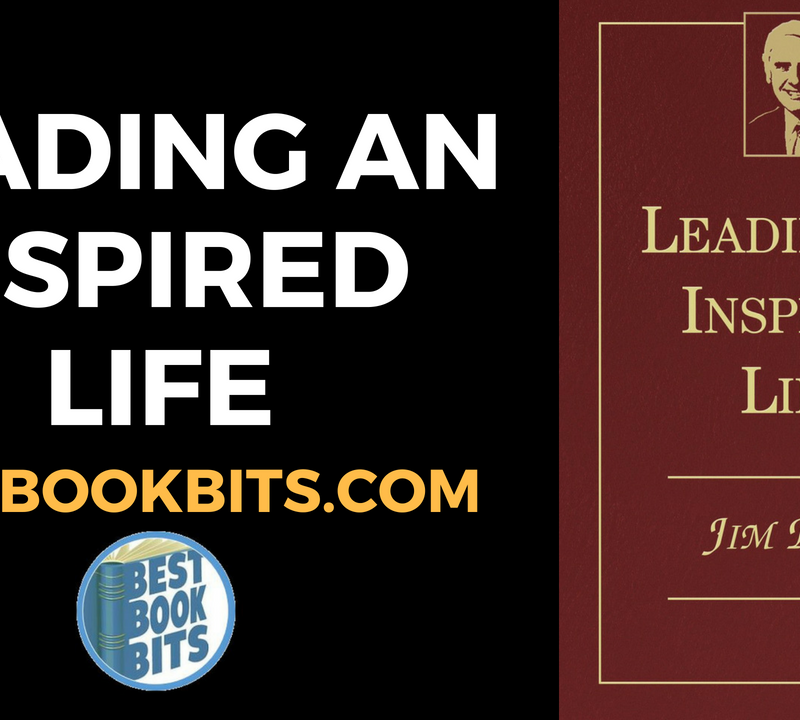★★★Sign up to the Weekly Book Summary Newsletter by CLICKING HERE
★★★Get any FREE audiobook of your choice by CLICKING HERE
Introduction
- Success is the progressive realization of a worthwhile dream.
- Successful people never, never quit – no matter what the odds appear to be.
- Most people don’t realize it, but the most vital element of success in life is the ability to get along well with other people.
- Unless you’ve developed your skills with people, you’re not going to achieve very much in life
- The only way to gain a sustainable advantage in your endeavors for success is by hard work and good, accurate judgment. (Jack Welch)
- Conflict is everywhere. But how you handle conflict – and especially how you handle people in the midst of conflict – makes all the difference in the world.
- People skills involve not only building positive, loving relationships, but also being firm when you need to be firm.
- We’ve got to understand when to b firm and when to be gentle with people. Wisdom lies in knowing the difference.
Chapter 1: Situations change when you change
- We are personally responsible for our thinking actions, and activities.
- You must be willing to grow up to make changes.
- Growing up means taking responsibility instead of shrugging it off.
- The first key to changing things is to grow up.
- Take responsibility for where you are in life.
- Say, “Where I am is no one else’s fault. I am responsible for my own actions, and I won’t waste my time blaming others.
- If you’re going to be a success, you’re going to have to be an adult to do it.
- Children who don’t grow up become adults who cause problems. (Fernando Diaz)
- Discipline is what brings us into adult maturity.
- Teenagers look at discipline as a drag and a burden. Adults have discovered that it’s the doorway to freedom. It freed you to succeed.
- The more times you repeat a negative pattern, the harder it is to break free of it. These patterns can become “hooks” in our life.
- Hidden hooks in life create our addictions.
- Let go of your comfort blanket.
- For most people it’s certain measure of mediocrity that makes them feel safe. They take a “middle of the road” course in life that’s neither hot or cold, but safe and cautious.
- If you’re going to have any real success in life, it’s time to put your comfort blanket down and decide to make the sacrifices and take the risks that are necessary to create your dreams.
- Give up deceptive desires. When you have a desire, either back it up with action or let it go. To believe you want something you’re not doing anything to achieve is actually deceptive.
- When you desire something without the commitment to take action toward it, that desire is deceptive. It’s empty.
- Change is actually positive power. It accelerates and expands you into new areas of experience, excitement, enjoyment, and achievement. It’s fun!
- Whenever you surrender to the small, you can’t stand tall.
- If you fill yourself with unreality in life, you will not be prepared for the thunderbolts. (Pat Riley)
- Don’t surrender to the soft side. We mustn’t give in to lethal laziness, or we will paralyze the power of change in our lives.
- The soft way is the way of failure. Success never negotiates its price.
- Secret of my success, focusing on others is the biggest part of it. Loving other people takes your eyes off yourself.
- Giving is the basis of all success.
- Focus on yourself, and over the long haul, you will fail in life. Focus on the needs of others, and you will meet with great success.
Chapter 2: Positive Patterns for Success
- A successful person is always productive.
- Maintaining good health is one of my non-negotiables.
- Family and friends should be treasured. Putting loved ones first and caring for them is a nonnegotiable.
- Take responsibility for your actions – and your reactions.
- Disabilities are not disabilities until you say they are. Possibilities are not possibilities until you say they are, either. Everything you can do or not do is in your mind. It’s your decision.
- You’ve got to decide where you’re going. Once you decide where you’re going, that direction will determine your decisions in life.
- When you’re driven by a determined direction, a few missed objectives won’t get you off the path.
- Direction leads to mission, and mission puts that drive inside you to keep going till you get there.
- Forgiveness is letting them go.
- Balance time with people and time alone.
- Your emotions have natural movement. This is part of being human. Learn to rest and relax with the ebb and rise with the flow.
- Jack Welch’s six rules of success.
- Control your destiny or someone else will
- Face reality as it is – not as it was, and not as you wish it were
- Be candid, up-front, and totally honest with everyone
- Change before you’re forced to by some outside source. Be in control of the change and the pace of change. Be like the man who decides to eat a better, low-fat diet before he has a heart attack, rather than waiting until he has one
- Don’t manage people. Lead them by example
- If you don’t have a competitive advantage, don’t compete. Either get a competitive advantage, or get out of the game
- Deliver more than you promise.
Chapter 3: Moving Forward with People
- At the heart of people building is people loving.
- Practice a friendly flexibility.
- Set your goals in concrete and your plans in sand.
- Broadcast positive body language.
- If you’re relaxed and confident, they feel relaxed around you.
- When your body talk is warm, open, relaxed, confident, people spontaneously respond to you.
- Keep your voice pleasant.
- Voices are particularly important when you’re talking to people on the telephone.
- Express convictions appropriately.
- Listen Attentively.
- Be prepared.
- Preparation is part of developing good relationships.
- Be authentic.
- Find a connection.
- Build bridges.
- Keep the lines of communication open with as many people as you can.
- Three rules of success:
- Win the trust of others by being trustworthy
- Win the respect of others by being respectful
- Win the friendship of others by being friendly
- Be empathetic.
- Stand firm.
- Defuse conflict.
- Don’t push people. When you push, they push back.
- Focus on a solution.
- Use a can you help me approach.
- Practice the duck response.
- Develop a sense of humor.
- Express genuine praise and appreciation.
- Whatever you notice and observe in someone else reveals a similar quality in you.
- Exude happiness.
- Make a change easy.
- Change is actually an expansion of something that already exists inside them.
- Become a storyteller.
- Life isn’t really about facts and figures; it’s about people – their feelings, their actions, their decisions, and their results.
- Learn the art of telling stories. It works wonders.
Chapter 4: How to Stay Motivated Forever
- Everyone is driven by the same basic needs.
- Desire for respect, everyone wants people to respect them.
- We aren’t what we own. Material things are just things. They make a statement about us, so in that way they’re significant, but they’re not who we are.
- Need for financial security. Financially, you’re one of two things: you’re either a leaseholder or an owner.
- Financial security is built on ownership.
- We want to own things – we don’t want things to own us.
- The pursuit of pleasure: We’re all motivated by things that bring us pleasure.
- Helping other people win gives you a thrill that nothing else can compare to.
- Focus on your dream.
- The difference between a dream and a fantasy: One you’re willing to work for; the other you’re not.
- In my study of achievers I have found that the difference between the great and the mediocre is one thing: The willingness to make a decision. (Danny Cox, a former supersonic test pilot)
Chapter 5: Deal with Regret
- Fear sometimes paralyzes you inside. It even keeps you from being honest with yourself and getting help. Don’t let this fear hold you captive in your regret.
- Past circumstances are, in fact, unchangeable. So regret is a past focus – and past focus breeds powerlessness and depression. When you let go of regret, you can look ahead and understand that the future is in your hands.
- If you’re going to be a winner, you’ve got to get a forward focus. Life isn’t in the past – it’s in the future. Forward, march!
- A lot of disappointments in life are due to our own selfish expectations not being met.
- Belief in yourself.
- Commit yourself to believing that winning – in whatever area it is – is still possible for you. You can’t ever do anything to alter what’s already happened. But your attitude and belief in yourself can impact your success in the future.
Chapter 6: Overcome Rejection
Seven reasons people reject you:
- You’ve become a threat to their lack of performance.
- A winner mentality threatens other people whose approach to life is different.
- Jealousy. Rejection sometimes stems from jealousy.
- Nicholas Von Hoffman, who writes about today’s business climate, has this to say: We have a serious problem in society. We cannot increase the standard of living for everyone without generating more wealth. And at the same time we hate whoever generates the wealth.
- Reluctance to change.
- Some people prefer the certainty of misery to the uncertainty of change. For some people, change itself is an enemy.
- Misconceptions. People don’t know what they don’t know. They reject what they don’t understand.
- Mistrust.
- Dislike.
- Experiences of personal rejection and disappointment.
- They don’t sell out to self-doubt and abandon their dreams.
- The functioneer is holding back just enough to avoid risking too much disapproval.
- Camouflaged compromise means that you won’t get results – but you’ll sure look like you’re trying.
- Becoming a turtle. This is a tendency to tighten up and go inside your shell for protection. It breeds bitterness and noncommunication. It also keeps you from achieving any kind of success. If you stay inside your shell your rejecter has won.
- Ultimately, there’s no greater secret of success than true grit. True grit give you three things:
- Emotional control. You don’t give in to depression, anxiety, fear, or guilt.
- Mental discipline. You don’t allow yourself to dwell on the negative; instead you focus on positive experiences.
- The power of chosen optimism. You can choose to be optimistic. You don’t allow rejection to spoil you, control you, or push you into retreat.
Chapter 7: Get a Grip on Your Ego
- The one thing that can protect our success is a strong dose of humility.
- People with ego problems don’t even know they have them.
- It’s vital to have an attitude of humility and a willingness to learn from anybody if you’re going to reach high goals in your life – and keep on reaching them.
- Why do we put other people down? Most of the time it’s just ego trying to look good in comparison with someone else.
- People with ego problems will tend to disregard the truth in favor of maintaining their already established beliefs about something.
- Never lose your sense of wonder at what you’re learning from others.
- Cultivate gratefulness.
- The greatest protection against arrogance in life is maintaining a sincere gratitude toward life.
- True leaders are always givers.
- Make people your priority. There’s a saying, Love people and use things. Don’t use people and love things.
- Ego problems always come from fear-fear of not being important enough.
Chapter 8: Eliminate Negative Patterns
- What is genuine maturity? It’s developing skill in areas of life where you recognize you need to change. Immaturity is stubbornly clinging to your old habits and insisting other people adjust to you.
- As in all laziness, giving in to a momentary release never produces what you really want in the long run.
- Assumption is assassination. If you operate on the basis of assumptions, you’ll leave behind you a trail of misunderstanding that will create strain in all your relationships.
- Once you decide that relationships are more important than catering to old habits and immediate impulses, you can make some creative changes in your life.
- Perfectionism says, “If you can’t do it perfectly, get out of the game” Excellence says, “Go at it one more time, you’re getting better.”
Chapter 9: Choosing Your View of Human Nature
- Don’t ever let your personal judgments destroy the potential in a relationship.
- When you’re dealing with individuals, acceptance is the foundation, and kindness is the basic skill in creating good relationships.
Chapter 10: Emotions and How They Work
- According to Webster’s, an emotion is “a state of feeling…that prepares the body for immediate action.
- Psychologist Dr. Arthur Freeman writes, “Too often common sense deserts us when we most need it and out so-called better judgment is swamped by a tidal wave of emotion.”
- It’s important to realize just how big a role emotions play in our lives. In fact, if you don’t understand that, you’ll never understand people at all.
Chapter 12: Keys to a Fulfilling Marriage
- It’s vital to know how emotions work, so you can take control of them instead of letting them take control of you. As you learn the art of mastering your own feelings, your people skills will flourish. But uncontrolled emotions will derail your relationships every time.
- Feelings always have a charge on them. They’re either negative or positive.
- Fear tends to be targeted oriented and specific. It comes from a sense of perceived danger, usually from a specific source. When fear grows, it amplifies your feelings toward a particular object or person. One psychologist calls it “awfulness amplification”. When fear is in control, you magnify a specific thing until it grows in your mind to such a proportion that it threatens your emotional equilibrium.
- Fear is one of the most common emotions people deal with.
- Ephesians 4:26 “Do not let the sun go down while you are still angry.”
- Professionals tell us there are many different reasons for depression. Sometimes it’s a result of unresolved anger that’s been repressed over many years and finally becomes depression. Other times it’s tooted in boredom – a feeling of purposelessness that occurs when personal dreams and goal are lacking.
- Desire is a hunger for learning, advancement, or improvement of your lot in life in any arena. Desire can be physical spiritual, mental, or relational. In whatever area desire occurs, it brings with it energy and aliveness.
- Confidence is a positive emotion about your own ability to deal with life and have it turn out well.
- A person without enthusiasm is a person without a dream.
- Webster’s says happiness is a state of well-being and contentment.
- Love means affection, attention and caring.
- Love, for example, opens the way for confidence, hope, enthusiasm, and happiness. Fear brings in worry, anxiety, anger, depression, and hatred.
- Emotions are connected to thoughts. That’s why they can be fleeting or continuous. It depends on your thought patterns.
- If you think a certain thought again and again, you’ll generate a thought pattern – which generate a continuous flow of emotion that goes with it.
- The bible says, As he thinketh in his heart, so is he.
- Our emotions, as well as our behavior, are determined by our thoughts.
- Emotions are responders – not initiators.
- Emotions follow an ebb-and-flow pattern.
- Emotions can be mistaken. Because what you feel comes from what you’re thinking, emotions will be off-base when your thinking is off-base.
- It’s vital to understand that you can’t meet an inside need with an outside substance.
- Being happy is an inside job. And it’s something nobody but you can decide to do.
- In fact, discipline actually gives us more freedom than we’d have without it.
- I don’t live to get – I live to give.
- If you keep on sowing, you’ll eventually reap a harvest beyond your wildest dreams.
Conclusion: You Can Do It!
- Do you know what dogged determination is? It’s getting a heart grip on something and refusing to let go until you’ve mastered it!
- Love is a glutton that craves whatever will feed it.
- Dogged determination is the true mark of a winner.
- The true test of a man is not his word, but his life.
- Greatness comes in small, bite-sized pieces, one day at a time. In fact, it’s the little things that make up the big things in life.
To buy the book, click the link in the image below to purchase from Amazon.














